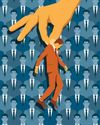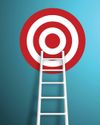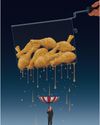
This is not an isolated phenomenon, and it’s not just about the virus. It’s what happens during crisis, when leaders and employees are pushed to make changes that they may have previously dismissed. Apple in 1997 faced an overwhelming crisis—a drop in stock price to a 12-year low and a close brush with bankruptcy— which proved to be enough of a catalyst for its board to bring back the transformative Steve Jobs. Marvel, on the other hand, did file for bankruptcy in 1996, which led to new ownership as well as a strategic reset away from comic books to a wider slate of entertainment properties.
These companies could have changed direction prior to these crises. There was no lack of data and insight preventing them from doing so. Yet they remained in stasis until it was too late. While Apple and Marvel survived their near-death experiences, others like Kodak, Nokia, and Blockbuster weren’t as lucky.
Why do companies need a crisis to change for the better? Are they not run by rational, highly qualified managers who are heavily incentivized toward detecting a shift in tides before it ever hits the ship? Are employees not continuously coached to embrace change and improve the company every day? One way of understanding this seemingly irrational behavior of companies is to compare it to the equally bizarre behavior of us humans, who too often wait for a crisis to hit before changing destructive habits.
هذه القصة مأخوذة من طبعة October 2020 من Entrepreneur magazine.
ابدأ النسخة التجريبية المجانية من Magzter GOLD لمدة 7 أيام للوصول إلى آلاف القصص المتميزة المنسقة وأكثر من 9,000 مجلة وصحيفة.
بالفعل مشترك ? تسجيل الدخول
هذه القصة مأخوذة من طبعة October 2020 من Entrepreneur magazine.
ابدأ النسخة التجريبية المجانية من Magzter GOLD لمدة 7 أيام للوصول إلى آلاف القصص المتميزة المنسقة وأكثر من 9,000 مجلة وصحيفة.
بالفعل مشترك? تسجيل الدخول

Chords of Success
For Saahil Goel, the deep-rooted passion for playing the guitar dates back to his high school days. Influenced by legends like Pink Floyd, Led Zeppelin, and the Pakistani band Strings, his musical journey mirrors his leadership style-balancing focus, discipline, and a collaborative spirit. Goel feels that playing guitar has enhanced his ability to balance focus and teamwork as a founder of an eCommerce shipping start-up.

IS YOUR RENT TOO DAMN HIGH?
Many small business owners struggle with their rents. Here's what to do.

HOW TO BOUNCE BACK FROM A BAD REVIEW
A one-star review can hurt your ego - and your business. But it's possible to prevent (and remedy!) this scary scenario.

HOW TO HIRE FOR THE FUTURE
Small businesses are struggling to find quality labor. So flip the conversation: Show workers how your business will set them up for opportunity.

You Can Hire Like Netflix
The streaming platform built an incredible team with a strategy called “talent density.” But you don’t need to be a tech giant to do it.

Speedy Growth Killed My Startup
We seemed to be rocking it - lots of press, major partnerships. Then we learned the harsh consequences of overlooking our customers.

Three Pivots to $100 Million
How do you find a working business model? Do it like Rowan-a brand that reinvented itself many times before finally piercing the ear-piercing market.

What Goals Actually Matter?
Some benchmarks are more important than others so what should you really care about? We asked six founders for their hardest-won lessons.

'Only the Strongest Are Going to Survive'
Brian Lee cofounded companies like LegalZoom and ShoeDazzle-and he believes a lot of conventional business wisdom is backward. Sure, it's harder to raise capital. But it's actually cheaper than ever to start a company.

HOW TRUST SAVED KFC
The former CEO of Yum! Brands explains how he turned around a struggling KFC-and the important lesson it offers for anyone in franchising.